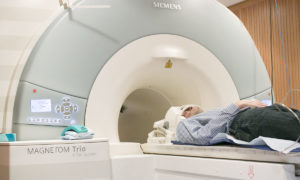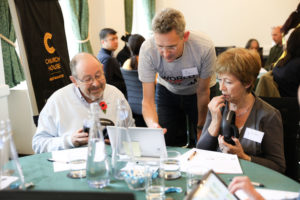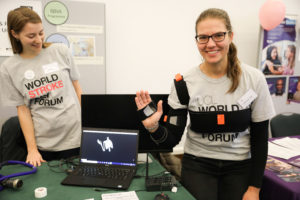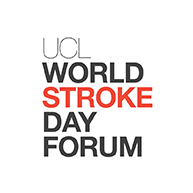Documentaries
View our four short documentaries, each exploring a different topical issue in stroke research, rehabilitation and care.
 Rehabiliation Apps: Aiding Recovery from Home
Rehabiliation Apps: Aiding Recovery from Home
Research suggests that stroke survivors typically require 100 hours of Speech and Language Therapy to see a marked improvement in their recovery. Yet, NHS therapy services are only able to provide a fraction of this, with the COVID-19 pandemic introducing further barriers by limiting or removing access to in-person therapies. This short film explores some of the latest app-based rehabilitation tools designed to improve outcomes using technology.
 Discovery Research: How researching the brain post-stroke improves wellbeing
Discovery Research: How researching the brain post-stroke improves wellbeing
It can take several years and significant funding to make small steps of progress in science. Yet, studies that focus on the intricate details can lead to big changes in the long term. This short documentary explores how improving our understanding of basic processes, such as how thoughts turn into actions, can revolutionise rehabilitation and predict language recovery after stroke.
 It’s Never too Late for Recovery
It’s Never too Late for Recovery
Stroke survivors can sometimes feel that once their NHS-prescribed rehabilitation is complete, their recovery reaches its endpoint. But researchers at UCL’s Queen Square and stroke charities across the UK are working to change this through new models of rehabilitation, ranging from intensive in-person therapy to digital neurorehabilitation at home.
 How Technological Advancements Boost Recovery
How Technological Advancements Boost Recovery
In the heart of UCL’s Queen Square, researchers are reimagining stroke recovery. While the COVID-19 pandemic has in many ways been difficult for stroke survivors, the past 18 months has accelerated the development of several new technologies designed to improve stroke care, treatment and rehabilitation.


